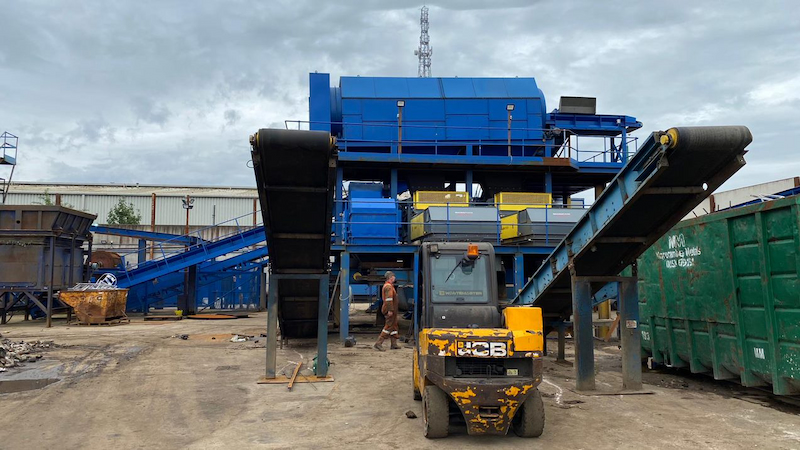Of all the metals we process, we see a lot of magnetic metals come through our process and whilst some types of magnetic metals make placements for ideal fridge magnets, there is much more to them. The recycling of these products has a significant impact on the sustainability of our future.
Magnetic metals are essential to modern technology and are found among most household appliances, mobile phone speakers, electric motors, and so much more. We will cover all there is to know about these metals and how important it is to ensure these metals are recycled.
What Are Magnetic Metals?
Magnet metals were first discovered over 4000 years ago and have since been used in manufacturing equipment such as navigational equipment, medical equipment and almost all electronic devices.
Most metals which are magnetic are ferrous and contain a percentage of iron, such as;
- Mild steel
- Carbon steel
- Stainless steel
- Cast iron
- Wrought iron
Although a rather peculiar one, there is also galvanised steel. Although it is coated in zinc, which is not magnetic, the coating is so fine that the magnetic properties of the steel are not compromised. Although this list covers many magnetic metals, there are many others and an array of categories in which they fall, including hard and soft magnets. There are additional ways to categorise magnetic metals depending on their state;
Permanent magnets – These metals offer a crystalline structure which is permanently re-aligned.
Temporary magnets – Only under specific conditions do these metals create a magnetic field.
Electromagnets – An electromagnet is created by coiling a wire around a ferromagnetic material and running an electrical current through it. This magnet only produces a magnetic field as long as the electrical is running.
Why Are Magnetic Metals Important in Manufacturing?
Magnets are becoming more essential to manufacturing everyday items in a growing digital world. These metals are paramount to the manufacturing industry due to the vast array of applications in which they can be applied. They can be found in the likes of credit/debit cards and recording data facilities like hard drives. Even machines within hospitals utilise the properties of magnetic metals within their MRI machines.
However, the most notable use for these metals is their application within electronic cars, especially hybrid self-charging cars. Using magnets, self-charging vehicles can create their own charge, reducing the requirements for external charging and additional energy usage.
Magnets could also play a significant role in the future of autonomous driving. The likes of Volvo are developing how to utilise magnets to create more sustainable vehicles and safer road usage. They are improving on ideas of self-driving cars using magnets placed on roads to help guide vehicles, essentially the same way Scalextric cars are manufactured. These innovations are only possible with the use of magnetic metals. As we have covered previously, these are in short supply from mining, making our non ferrous and ferrous metal recycling essential to ensure that products like these have the materials needed to offer a more sustainable future.
How We Recycle Magnetic Metals
When we receive scrap metal, our first aim is to ensure that the metal we receive is of the best quality. This helps us offer our customers the best price and process metals that will provide our buyers suitable quality materials to work with and give new life to by producing material for manufacturing.
At Morecambe Metals, we use an Eddy Current Separator, which helps us to segregate the ferrous metals from the non ferrous metals. To do this, we also put magnets to work. The conveyer belt transports the shreds of metals through the machine, and using a compelling magnet travelling at high speeds, it produces its own electrical current, which repels any of the conducting metals.
This process helps us eliminate plastic or rubber from the material, allowing us to collect high-quality recyclable metal, which is then compacted into bails for easy transportation.
With Several Eddy Current separators, we can offer the best local scrap metal recycling services, which helps us specialise in a vast array of essential materials.
The Importance of Recycling for a More Sustainable Future
Steel is one of our most commonly recycled ferrous metals through our scrap metal recycling processes, and we are capable of recycling up to 2000 tonnes per week. Recycling steel is so important because it is one of the most demanded metals for manufacturing, with nearly 40% of the materials in the steel industry being recycled ferrous metals. With it being one of the magnetic metals, it plays an integral part in developing new sustainable products. Recycling plants like ours could help ensure that raw material mining is prevented where possible, protecting the land and future.
If you are interested in any of our metal recycling services, take a look through our services and enquire online to see how you can be a part of our mission to reduce scrap metal waste from reaching landfills.



